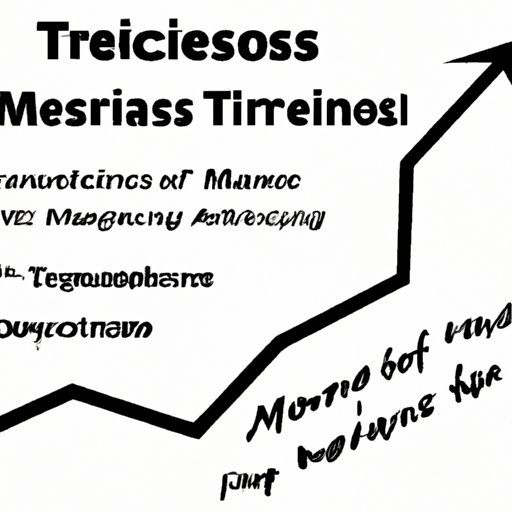I. Introduction
Multiple Sclerosis (MS) is a chronic disease that affects the central nervous system, including the brain, spinal cord, and optic nerves. MS can cause a range of symptoms, such as fatigue, difficulty walking, and cognitive impairment. One of the most common symptoms of MS is tremors. Tremors can significantly impact a person’s quality of life, making it difficult to perform daily activities. This article provides an in-depth look at MS tremors, including types, symptoms, and available treatments. We also explore coping strategies, emotional impacts, and the relationship between MS tremors and mobility, as well as career strategies and advocating for yourself in the medical system.
II. Understanding Multiple Sclerosis Tremors: Types, Symptoms, and Treatments
MS tremors are involuntary shaking or movements that can occur at any time, affecting different parts of the body. Tremors are a result of damage to the central nervous system, which interferes with the messages transmitted between the brain and muscles. There are three types of MS tremors: resting tremors, action tremors, and intention tremors.
Resting tremors occur when a person’s muscles are relaxed and not in use, such as when sitting or lying down. Action tremors occur when a person performs a voluntary movement, such as lifting something or writing. Intention tremors occur when a person attempts to perform a task, such as touching their nose with their finger, and the shaking increases as they get closer to the target.
The symptoms of MS tremors vary from person to person. Some experience slight shaking, while others may experience intense trembles and twitching. The symptoms can also impact different areas of the body, such as the hands, legs, or head.
Several treatments are available for MS tremors, including medications, therapy, and surgery. Medications such as beta-blockers and anticonvulsants can help reduce tremors. Occupational and physical therapy can help improve fine motor skills and coordination. For severe cases, surgery such as deep brain stimulation may be considered.
III. Living with MS Tremors: Coping Strategies and Support Systems
Living with MS tremors can be challenging, but there are coping strategies that can be helpful. Relaxation techniques such as deep breathing, meditation, and yoga can help reduce stress, which can exacerbate tremors. Exercise and staying active can also help. Low-impact activities such as swimming or tai chi can improve physical health without causing excessive fatigue or exacerbating tremors.
Support systems are important for people living with MS tremors. Support groups, family, and friends can provide emotional support, encouragement, and practical help. Joining a support group can also help people connect with others who understand what they are going through and provide helpful information.
IV. MS Tremors and Emotional Impact: Navigating the Mental Health Side of the Disease
MS tremors can impact mental health, leading to depression, anxiety, and low self-esteem. These emotional impacts can be challenging to manage on top of the physical symptoms. Therapy, mindfulness, and medication can be helpful in managing mental health. Seeking professional help can also provide practical coping strategies and support for people with MS tremors.
V. The Relationship Between MS Tremors and Mobility: How to Stay Active and Independent
MS tremors can impact mobility, making it difficult to walk, balance, and coordinate movements. However, there are ways to stay active and independent. Accessible exercise options, such as using resistance bands or exercising in a pool, can help improve physical health without exacerbating tremors. Mobility aids such as canes or walkers can also be helpful in maintaining independence. Rehabilitation therapy can also be helpful in improving mobility and coordination.
VI. New Advances in MS Tremors Research: Promising Developments for Future Treatment
Research in MS tremors is ongoing, and there have been promising developments in future treatment. One area being explored is focused ultrasound therapy, which uses non-invasive sound waves to treat tremors. Additionally, new medications are being developed that target specific proteins that are related to tremors. These developments could significantly improve the treatment of MS tremors and make living with the condition more manageable.

VII. MS Tremors and Employment: Strategies for Maintaining a Successful Career
MS tremors can significantly impact work life, leading to absenteeism or difficulty performing tasks. Discrimination can also be a concern. However, there are strategies for maintaining a successful career. Disclosing your condition to your employer and seeking accommodations can be helpful in managing daily tasks. Flexible work options, such as telecommuting or adjusting work hours, can also be helpful in managing physical symptoms.
VIII. Advocating for Yourself: Tips for Communicating with Your Doctor About MS Tremors
Effectively communicating with doctors about MS tremors is critical in receiving appropriate care. Preparing questions ahead of time, seeking a specialist, and tracking symptoms can be helpful in advocating for yourself. It is also important to know your rights and the resources available to you. Advocating for yourself in the medical system can make a significant difference in managing MS tremors and improving your quality of life.
IX. Conclusion
Living with MS tremors can be challenging, but there are strategies for managing both physical and emotional symptoms. Keeping active, maintaining a support system, and communicating effectively with doctors are all key factors in managing MS tremors. There are also promising developments in research that suggest the future of treatment for MS tremors is bright. Seeking support and treatment is critical in managing MS tremors and improving your overall quality of life.
